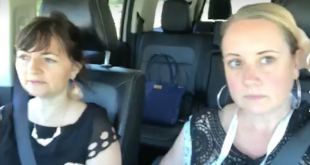What to expect from the NYC event – and how to follow along
See
Jane Do will be going to New York City as delegates for the 56th session of the United Nations
Commission on the Status of Women (http://www.un.org/womenwatch/daw/csw)
in March. One person we’ll be spending time with there is Marilyn Fowler, president
and CEO of the Women’s Intercultural Network (http://win-cawa.org/MainFiles/about.html)
(WIN), who’s a pro at navigating around U.N.-sponsored meetings
WIN,
based in San Francisco, aims to connect and involve women across cultures. Soon
after getting its start in 1995, WIN was involved in the notable Fourth World
Conference on Women in Beijing, which Hillary Clinton attended as First Lady.
Fowler says WIN takes the global platform issues (http://www.un.org/womenwatch/daw/beijing/platform)
from the Beijing conference – including equality,
development and peace for women and girls – and focuses on making them happen
on a local level. As a non-governmental
organization (NGO) that acts as a consultant to the U.N. Economic and Social
Council, WIN’s newest goal is to have a Fifth World
Conference on Women become a reality.
But for now, what’s expected to happen at the United Nations’
current women-themed commission? Fowler gives us a preview:
See Jane Do:
What is WIN’s role in the UN Commission?
Marilyn Fowler: As an NGO, we can send accredited
delegates to the UN Commissions. Those delegates can go into General Assembly
meeting and sessions, where they can make statement. We can be influencers and
advocates at the UN. Another reason we go to UN Commission meetings every year
is so we can meet women from other countries.
SJD: What’s your mission for the Commission this
month?
Fowler: We’re planning to campaign for a Fifth World
Conference for Women, so we’re going with flyers and buttons.
After
the Fourth World Conference in Beijing, it was agreed that every five years the
UN Commission would re-evaluate, reassess and review the entire platform. Every
country sends its delegates in to do that.
In 2005, we were ready to reaffirm it, but the Bush Administration
wanted to remove from the platform
anything that referred to sex (http://www.siecus.org/index.cfm?fuseaction=Feature.showFeature&featureID=1295),
like birth control, abortion, even sex
trafficking. Women were coming to us from other countries, saying, “Your President doesn’t have a right to vote
on our bodies, so we choose to vote against the Bush Amendment.” On the last day of voting, the energy on the
floor was unbelievable. Delegates sat in the balcony above and cheered, while
everyone on the floor, stood up and voted no. Only Costa Rica voted for the
amendment. When women can work together and collaborate, they can make a
powerful difference.
SJD: How easy or hard
will it be to get a Fifth World Conference organized?
Fowler: Well, first one country
has to make a resolution that the UN hold and sponsor the conference, and send
the resolution to the General Assembly for a vote. We have people at the United
Nations who are supportive of it but can’t take action unless it gets to the
General Assembly. If it’s not an UN-sanctioned conference, a lot of women would
not be allowed to come or wouldn’t get the funding needed to travel to it. If
it is sanctioned by the UN, they’ll have an easier time getting visas and
funding. The next five-year review of the Beijing platform is 2015, so that’s
the date we’re promoting. The San Francisco Commission satellite has already
passed a resolution inviting the conference to be hosted in that city.
At
the Fourth World Conference in Beijing, 40,000 women were in attendance. At a
Fifth World Conference, San Francisco might be one of the conference hubs, but
now there could be millions in women in villages who could use their cellphones
to connect and participate from wherever they are. By 2015, we could probably
do major conferences online and by phone. We’re proposing the use of major
fiber hubs around the world, in places like San Francisco and Bangalore, so we
could broadcast out to the world what’s going on at the conference.
SJD: What’s another
topic of interest you see bubbling up at the Commission?
Fowler: Women’s News Network (http://womennewsnetwork.net) is coming
with us; four of their journalists are delegates. Lys Anzia, the editor in
chief, will put out an action about Google, which is allowing people to buy
women online and do sex trafficking. On the first day of the conference, Lys
will hold a press conference focused on getting
Google to shut down that activity and not allow trafficking. I think
that will go viral, because it affects women everywhere, and it’s a corporate
issue. Companies like Apple are sending a lot of work over to China and not
paying attention to the working conditions in the factories. So we’re looking
at all corporations, even our favorite tech ones like Google and Apple. But
that’s the good thing about technology – women will come to the conference to
talk about issues like these and have the opportunity to make them go viral
online.
SJD: What are you
expecting personally out of the Commission?
Fowler: Well, you don’t know when you leave there
exactly what the outcomes will be, because voting on the issues raised doesn’t happen
till they go to the General Assembly. So
what I get out of it is the friendships I make with the women I meet there. It’s
a big networking session, but you also make friends for life, and you never forget
each other.
SJD: How can we keep
tabs on what happens at the Commission?
Fowler: I recommend following
Women’s News Network (http://womennewsnetwork.net),
which will also be posting on its Twitter feed (https://twitter.com/#!/womenadvocates). And watch your Facebook and Twitter feeds, as
there will be more access this year to what’s going on at the Commission.
SJD: And what can we all
do after the Commission is over?
Fowler: Afterwards, we will be putting out reports of
what came out of the Commission on our website (http://win-cawa.org). Also,
I encourage women to check out US Women Connect (http://www.uswc.org/home.html), a NGO
that aims to link American women and girls to the global agenda by trying to
build networks in all 50 states. It’s an opportunity to connect with women in
every state, particularly women who are isolated in reservations, in low-paying
jobs, etc. Once I get back from New York, WIN and I will try to build more
collaborative networks with women of all stripes. So stay tuned…
 See Jane Do Everyday Women Doing Extraordinary Things
See Jane Do Everyday Women Doing Extraordinary Things





